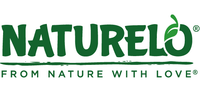VEGANUARY: Your Ultimate Guide To A Healthy and Stress Free Vegan January
It is no coincidence that Veganuary coincides with the start of a New Year.
At this time, many of us are left yearning for change after the inevitable Christmas excesses leave us feeling sluggish and lacking in vitality.
Veganuary is certainly one way to put plants back on the menu, and it offers a chance to reevaluate our consumption of animal products. It is also an opportunity to try a wide and exciting array of new plant powered recipes, rich in flavour, taste and nutritional value.
Whether we go exclusively Vegan, or just introduce more plant based meals, we can easily increase our fibre intake, boost our antioxidant levels and ensure adequate intake of both pre and probiotics.
We may find that after a month, we naturally favour these nutrient dense, plant based meals, for the variety and taste they bring. Alternatively, we may prefer to reintroduce occasional animal products, perhaps focusing on the quality of such items, whilst reducing the quantity.
Either way, this guide will support your journey into vegan living, helping you to transition into this new way of life, in the most balanced and healthy way possible.
Look beyond the label
Vegan lifestyles can be healthful, or harmful, depending on the way they are conducted. It is important to remember that the term ‘vegan’ is not, in itself, a label of health.
Afterall, many processed snacks containing hydrogenated fats, excess sugar and unrecognisable ingredients may be labelled as vegan, but are far from the naturally beneficial wholefoods, which are usually label free.
This is not said to warn you off any and all conveniently packaged vegan products, but rather to encourage a discerning eye when considering the pros and cons of packaged vegan fare.
What are the potential pitfalls of going vegan?
Simply put - going vegan without proper understanding can result in the potential for nutritional deficiencies.
The decision to try vegan alternatives, albeit temporarily, involves a degree of pre planning.
This is to ensure that all core nutritional requirements are met, without any risk of deficiency or depletion.
Once you are fully aware of the potential nutritional gaps a vegan diet may produce, it is easier to target your dietary intake to include everything you need.
There are only really a few nutrients which need to be considered- and all of them can be obtained with a few careful tweaks.
Vitamin D
Normally obtained partly through the intake of egg yolks, liver and oily fish, vegans need to find their Vitamin D from a combination of fortified foods, sunshine and supplementation. Certain plant based milks are enriched with Vitamin D, and a few species of mushrooms contain small quantities too. However, in the northern hemisphere supplementation is recommended from October - March, irrespective of dietary intake. Vegan D3 supplements are often produced from natural plant based sources such as marine algae.
Vitamin B12
Obtained exclusively from animal products, B12 supplementation is key. Vitamin B12 plays an essential role in our nervous system, and side effects from true deficiencies can be irreversible. Luckily, Vitamin B12 is often included in all good vegan multivitamins, and can also be obtained independently.
Iron
For women who menstruate or suffer from anemia, it is particularly important to ramp up iron intake, from a combination of naturally iron rich food (think dried apricots and spinach) and supplementation where necessary. Combining food state iron sources with Vitamin C ensures optimum uptake.
DHA Omega 3
Omega 3 is classed as an essential fatty acid, which means we must consume adequate supplies from our diet, to support the maintenance of our health. Whilst oily fish is a rich source of omega 3, helpfully we can also find some in walnuts, chia seeds and marine algae, (where most vegan Omega 3 supplements stem from).
If you are not consuming a high intake of vegan sources, it may be worth adding a vegan omega 3 supplement to your protocol.
Calcium & Zinc
Often overlooked in vegan diets, these essential nutrients can be found in fortified dairy alternatives, dark green leafy vegetables and pumpkin seeds, and are usually featured within a vegan multivit too.
Over Reliance on Processed Foods
It can be hugely tempting to load up on everything and anything with a vegan label, especially when transitioning from a regular diet, as it removes any of the uncertainty around product suitability.
However, this can lead to an overconsumption of processed foods which may include unhelpful ingredients. Instead, by focusing on real, whole foods, you can find your way without the unnecessary and potentially harmful additions.
Think as close to nature as possible: things which are largely unpackaged and unlabelled are likely to be unprocessed, and higher in nutritional value. Choose from an abundance of vegetables, fruits, seeds, nuts, legumes and pulses, using a variety of spices and herbs for flavor and an added nutrient boost.
Unbalanced Macronutrients
Another common pitfall is the overconsumption of carbohydrates at the expense of healthy fats and proteins. Whilst vegan carb options are readily identifiable and abundant in daily life, we need to ensure we are getting sufficient amounts of both protein and fats.
Whilst there is a common misconception that protein is only found in animal products alone, we do need to be careful to ensure we mix and match our plant based protein sources to provide adequate amino acid intake.
Good examples of plant based proteins include tempeh (a fermented soybean product from indonesia), tofu, nuts, seeds, beans, pulses and legumes, as well as dairy free alternatives.
The more variety the better, with each meal or snack ideally including an adequate protein portion.Remember to also include the omega 3 rich fats as mentioned above.
Overall, when done well, Veganuary can offer us an opportunity to put plants back in the picture, enriching both our taste buds and our health. With a little attention to the shape and form of our vegan lifestyle we can avoid nutritional deficiencies and ensure optimum healthy wholefood intake.
Key Takeaways:
- Veganuary can be a good opportunity to reevaluate current eating patterns
- Check the labels for unnecessary additions
- Focus on key nutrient intake to avoid deficiencies
- Eat as close to nature as possible
- Balance macronutrient intake to include adequate intake of healthy fats, proteins and complex carbs




Leave a comment